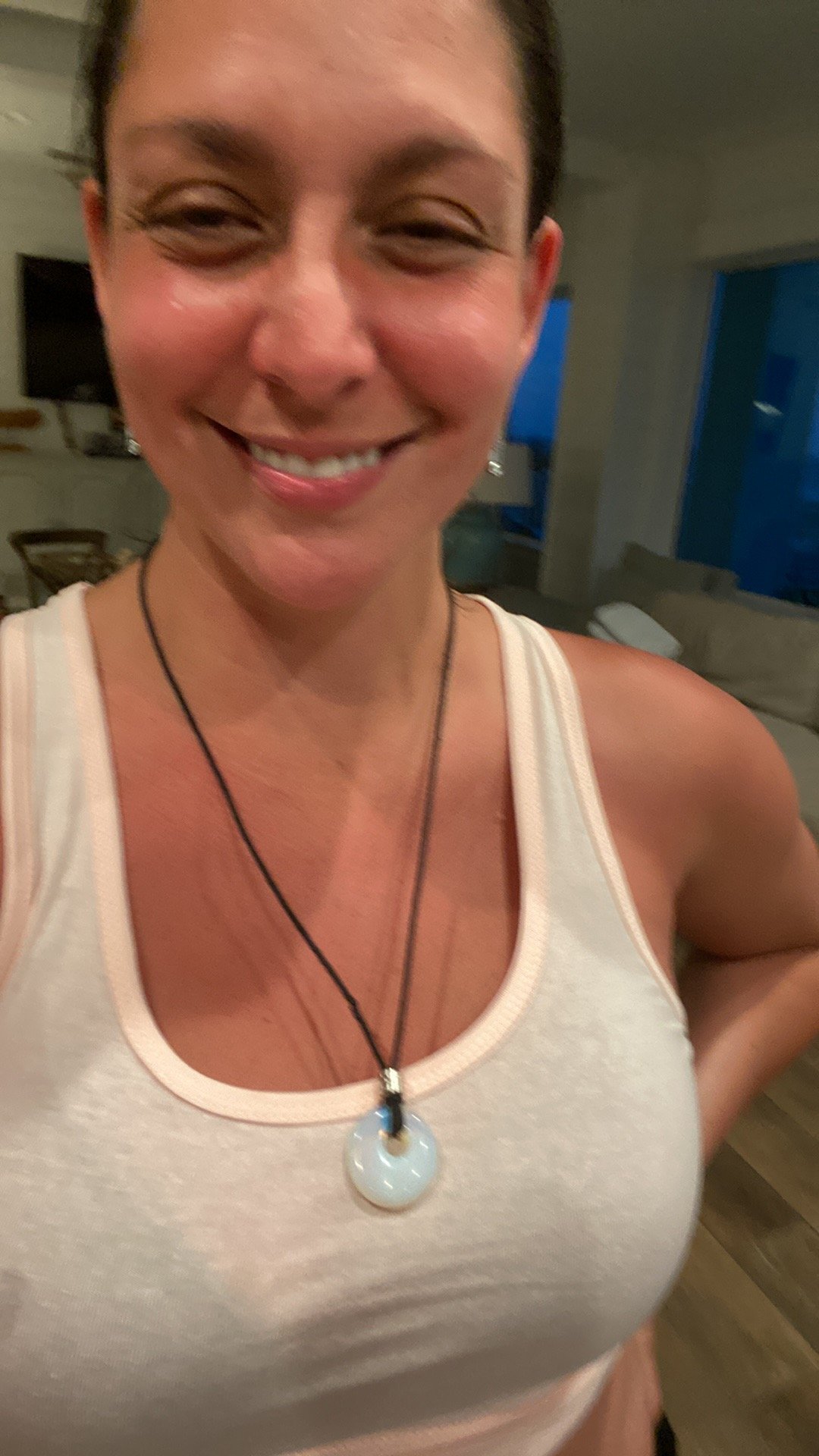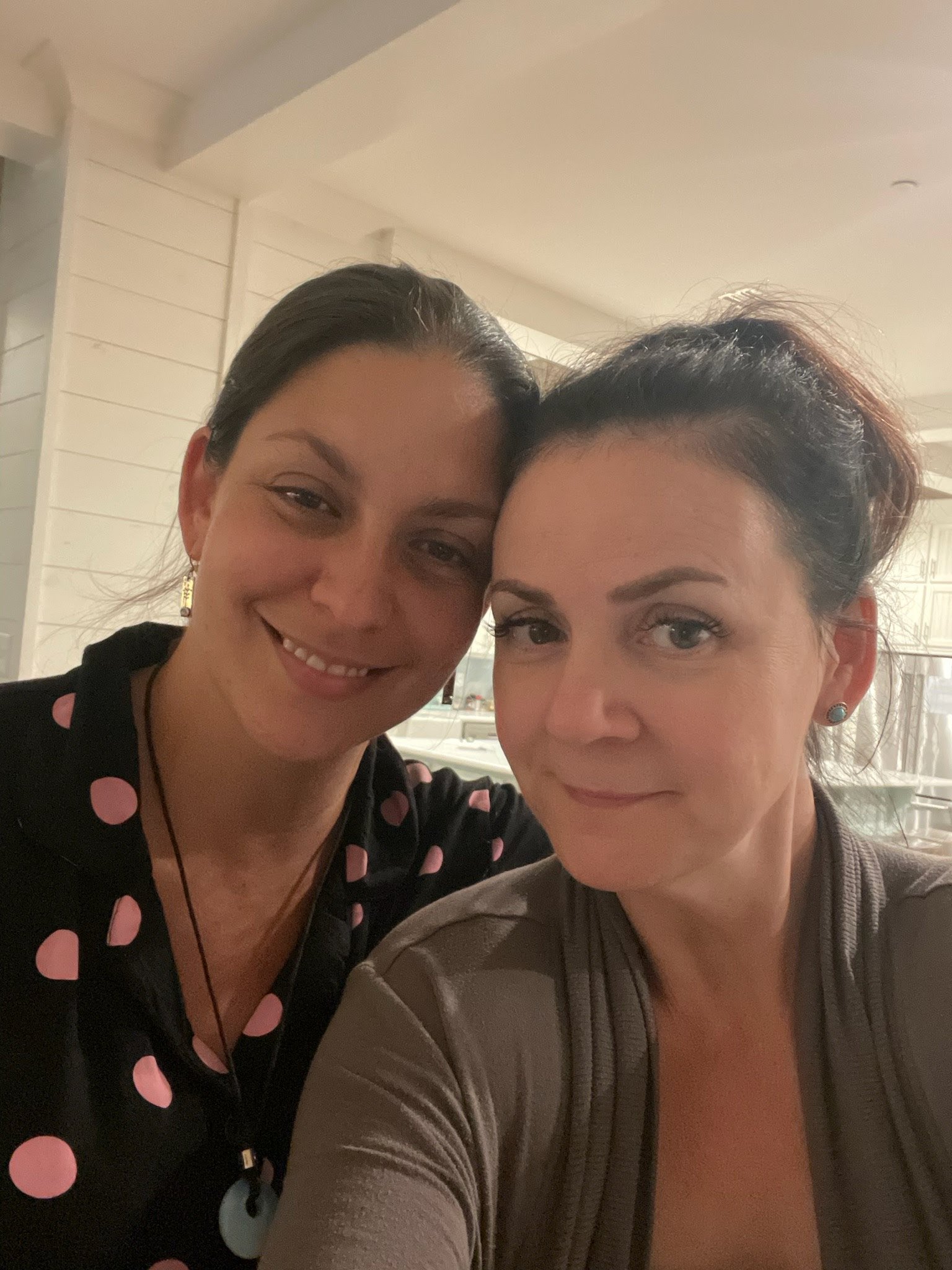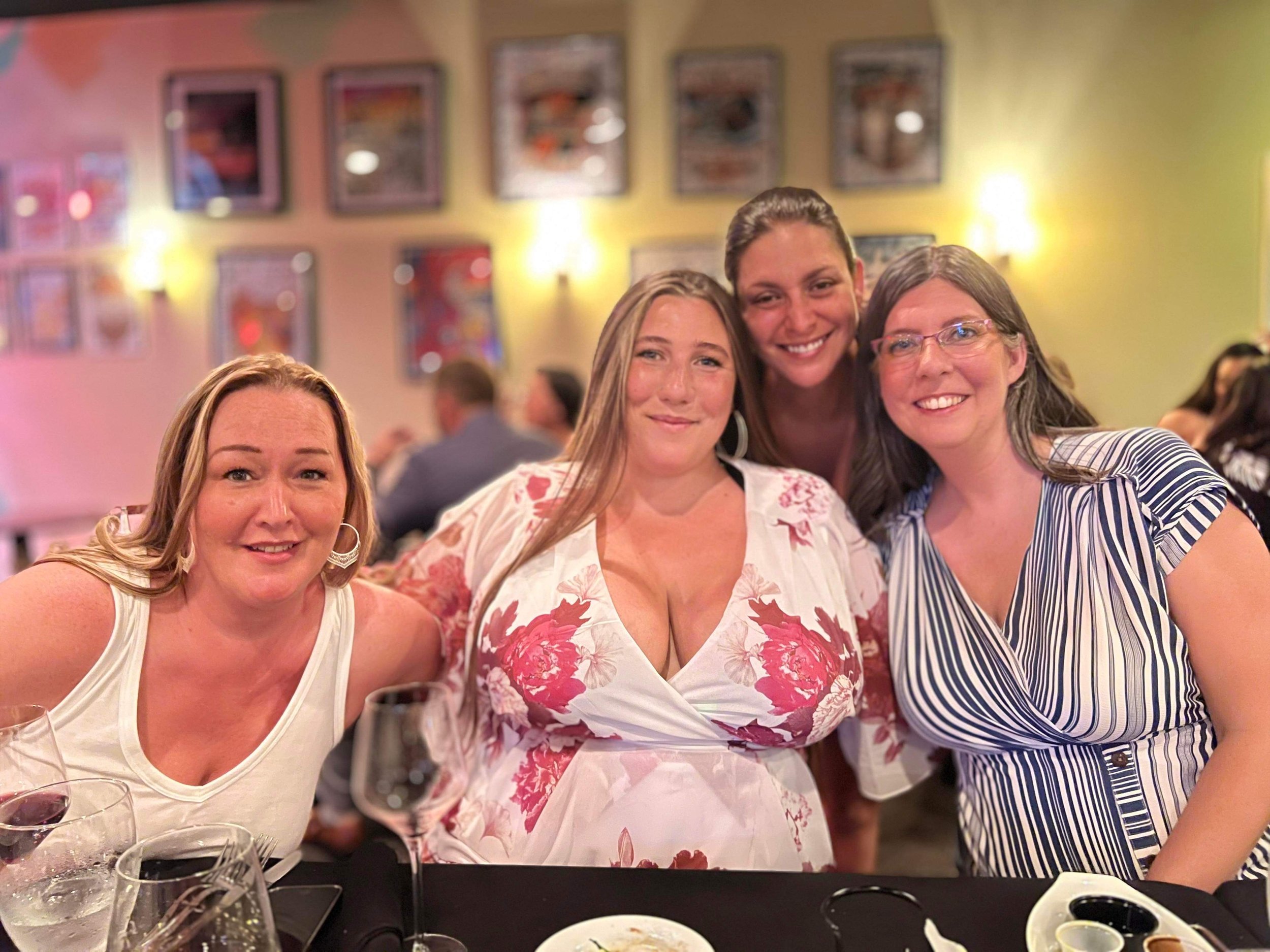Interview on Nov 24, 2022
Women’s Health Sidebar with Sam C.
Discussing a female’s menstrual cycle can bring out so many emotions. We are our most vulnerable during this phase and it causes us to change, evolve and grow. Sometimes change hurts. Sometimes it requires letting go of things that serve us no good. This requires a great deal of education, love and support. Meet Samantha Crocker of Western NY, who has invested herself into bringing awareness on such a quiet yet important topic.
Tell us your WHY?!
As I got into my 30’s I feel like I was the woman having freak outs more often, and spent a lot of time rationalizing away my actions, apologizing for them, or even feeling entitled to them based on the emotions that I was feeling. I grew up never having any discussion on my cycle. Matter of fact my childhood was so unconventional, there was definitely no menstrual education at all, especially mental.Throughout my adolescence and into my 20’s, I just assumed any of my up and down emotional stuff was due to my chaotic emotional environment. As I got older I started to question that though. Sometimes even feeling as though I wanted to bottle my blood on the good days, so that I can understand what was “wrong with me”, and fix it on the bad ones. It was that thought that started this journey. In our society, PMS jokes are the norm, and so I thought I would try to dig into it all, but in a more conventional way. And so I was the woman who went to her OB/GYN to ask if it could be cycle related, only to be told “everyone feels that way” and that maybe if I just take a Prozac for a couple of days during PMS, AND get out my credit card for some retail therapy all would be fine.
Prozac and shopping.
That was it. No education, no possibilities.
I tried the Prozac for that month, but knew in my heart that it wasn’t the answer. Over the years I tried different counselors, different tactics, and eventually I took measures into my own hands. I started doing everything I thought would help me in becoming my best self. I began learning about mental health, doing all kids of workshops, reading personal development books, and taking in information every way I could. I loved it all so much that eventually I became a Life Coach, certified in mindfulness, CBT, a Doula, which for the most part, made me a “better” mother, a “better” friend, and what I thought was a better human. All of these things I did definitely was good for me, each thing helped me grow as a human, mentally and emotionally, but also I was doing these things partially coming from a place of lack, to fix some thing that I felt was still broken.
Like I needed to be “fixed”.
If I just learned more.
If I just did more.
And I felt really good, most of the time.
And then like clockwork, I would fall into these pits, and it would feel like everything I did wasn’t working. I started feeling frustrated, crazy, aggravated, and depressed, on the roller coaster of emotions, feeling lower and lower because no matter how much work I put in, I could never seem to get “better” and make it stick.After a while I just started to feel doomed, like when you feel you’ve failed yourself, your family, or like you’re just failing at life in general. And then poof, you feel better, you feel on top of the world, you’ve finally made it, you’ve got this… and it happens again. That roller coaster of emotions. It sometimes made me question my confidence, and my ability to do my job. I was a great life coach, but I honestly almost quit. If I knew all these things that I had been taught, and I was still feeling like this, I thought there really must be something wrong with me.
And then one day I realized a truth.
All the counselors that I ever went to, anybody that I ever asked, not one person talked to me about the complex simplicity of learning and tracking your cycle. And none of them had ever thought to bring up the way that our mental and emotional lives run so intricately with where we are in the cycle, even when I asked them. One female psychiatrist that I asked even said, I’ve heard of people having menstrual mental health problems, but I really don’t know anything about it. I asked her if she’s heard of PMDD, and she said yes, but she doesn’t even know what it stands for. Premenstrual dysphoric disorder (PMDD) is a severe, sometimes disabling extension of premenstrual syndrome (PMS). Although PMS and PMDD both have physical and emotional symptoms, PMDD causes extreme mood shifts that can disrupt daily life and damage relationships.
We have to do better at educating ourselves and others.
Sometimes we talk about the blood that comes out of us, but we don’t talk about where we’re bleeding inside or where our problems, thoughts and fears, both conscious and subconscious, past and present, are magnified in us in different ways every month.Learning this has changed my life. Everything made sense. All my training came full circle, and is so powerfully aligned. This is the place where I learned the most about who I am, what I want, and how to be my very most authentic self.
Aligned, comfortable, clear.
Not perfect, but truly happy and full of self love and understanding.
This is now my life’s work.
Educating women, therapists, counselors, psychiatrists, OB/GYN, general practitioners, adolescents , school nurses, husbands, etc is my BIGGEST goal before more women are misdiagnosed, self misdiagnosed, or continue feeling lost in a world where we should be better understood by all.
TAKE A DIVE IN THE DEEP BLUE SEA WITH SAM BY READING SOME INTERVIEW QUESTIONS ABOUT HER PROFESSION.
1. What advice would you give to a girl who just started her cycle?
When I teach the cycle to young women, especially those just reaching adolescence, I teach it from the emotional standpoint first. I explain all the variances that come with the different phases. I teach them how to track, and the super importance of tracking not just when we get our period, and when we ovulate, -but our actual thoughts and feelings during that time. I ask them to evaluate and journal those thoughts, before taking actions. I truly encourage them to understand their emotional flow, and hold space for themselves as they navigate this new life space with so much grace.
2. Do you believe having a supportive partner makes monthly visits
go smoother?
This is a great question.
By the time someone is done with my course, they can articulate so much more deeply about it all, but if that articulation is not understood or accepted, that’s a whole different problem.
Having a partner that is willing to listen and fully understand the true nature of our cycle can be the most amazing and beautiful thing. Having someone who doesn’t just ask what is wrong with you, joke about PMS, or make you feel not good enough, can change your inner thoughts for the worse.
Conversely, having someone willing to hold space, with you and for you, as you go on this journey can do just the opposite. Feeling like you don’t need to go into battle to try to explain the things within, that can feel unexplainable, is so freeing. I mean truly when you get down to it, having a supportive partner is really the goal for us in all aspects of our lives isn’t it?
Right now part of my Empty Net Exponential course offers a session to include having your partner join, if you both so choose to do that because it really can be so helpful to have that support from the inside.
3. What challenges do you face in your work?
s. Wow this is a tough one. The challenges that I face providing menstrual mental health care, wow.
One of the first and easiest challenges to name is really getting the word out there and being taken seriously in the medical community. It’s just not something they are talking about or focused on.
I have a counselor that I work with, she has been a counselor for 30 years. She has PMDD. In that 30 years she has not once asked a woman about her cycle, -even though she herself has PMDD. When we discussed this, she said professionally they are not taught to do this at all, and she’s not the only one to tell me this.
She also told me that since our sessions, I’ve given her the courage to start bringing this up with her own clients, and now she has had multiple women 1000% start understanding themselves better, and it has become part of her practice. That’s such a win!
But this needs to become commonplace. There should not be women being diagnosed as bipolar, BPD, or other mental health disorders, without even ever being asked about their cycle.
It makes my job even harder, because a lot of these women don’t even correlate the two or understand that they may be misdiagnosed, or that cycle can exasperate diagnosis.
It’s also really so sad hard that because of that, there are some women coming to me that are so scared. Thinking of it as a last resort, which I totally understand. Not understanding where a lot of feelings are coming from. Some of them already know that this is a cyclical response, and they feel as though they’re giving a life sentence to feel this way every single month. That it will never stop. The feelings that they feel are so intense, and sometimes it can feel like they are clinging to a last hope. It is not a quick process to redefine your menstrual mental health. I encourage my clients to understand that it takes at least six months just to even begin working through it and not to give up on themselves.
4. How can family and friends at home help with postpartum?
I have a lot of clients that told me that the best day ever felt as while they were pregnant, because the cycle has stopped. As a woman is returning to the way that her body naturally works without being pregnant, sometimes the onslaught of hormones and emotions can be overwhelming and daunting. This comes at the exact same time when you have just had huge life changes. To be able to come together and support our postpartum women as the beautiful women they are is such a blessing when done without judgement. So I think that is thing one – no judgement. Thing two would really be to ask beforehand what that person might desire and how you could help. Thing three would be asking afterwards if anything has changed in those desires. Because sometimes we don’t know what we need until we need it and everyone is so different.
I’ll post a generic list just from a regular website of actual things that you can do or offer, but I really think the biggest thing is just being there without judgment to actually hear everything, and even be a postpartum advocate if needed.
5. How do you feel vacationing with other like minded women boosts
mental wellness?
Ooooooo girl. So first of all, when it comes to this question, I have to point out that it is definitely not all like-minded women that come on my vacations. There are women from so many different walks of life, with so many different perspectives, and so many different reasons for coming.
Sometimes it’s within those differences that we find the most growth.
Sometimes what it does is open our minds to new ideas, new thoughts, different ways of doing things, or a deeper understanding of why somebody else is who they are. Sometimes within that space it allows and encourages us to change our thinking, alternatively sometimes what it does is solidify our thinking,- either way there, is that growth.
The bottom line for me when I work with people as a life coach, on one of my vacations, meetups, or in any way, is NOT to make everybody like minded. I know I’ve done my job when you think outside the box, and feel free to analyze, interpret, disagree, agree, and really find that true north self.
It’s a wonderful feeling and I provide an amazing platform and experience for people to open up and do this, and have the best time of their lives during it!
Feel free to check out the info on the next vacation coming up “Rise 2023” or if you’re local to 716 feel free to join in for one of the sisterhood ladies meetups.
https://www.bringouttherealyou.com/rise-2023
Check out her site and social media pages to learn more.
www.bringouttherealyou.com– Website
www.instagram.com/Samantha_Crocker -Instgram
https://www.facebook.com/groups/1697296700542044/ -Facebook Group
www.facebook.com/welovepd -Facebook
Final Remarks
Learning and understanding about your menstrual mental health is not just for those who have severe symptoms and it’s not only about women who have bad PMS, PMDD, or other diagnosis. It’s a way for ALL of us to better understand ourselves, teach our daughters, and use our cycle the way that it’s meant to be used, to bring us our best life.








